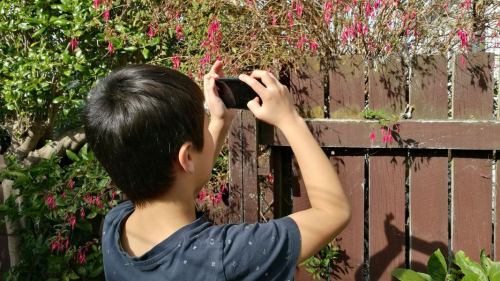
Hawke’s Bay is one of five New Zealand cities or regions participating in the global City Nature Challenge this year, alongside, Dunedin, Christchurch, Wellington, and Auckland.
As community science initiatives continue to grow in popularity, this year’s sixth annual City Nature Challenge is expanding to more than 400 cities across six continents.
Beginning on Friday, April 30 at 12:01 am in each time zone, the Challenge runs through Monday, May 3, 11:59 pm. The global event, co-organised by San Francisco’s California Academy of Sciences and the Natural History Museum of Los Angeles County, calls on nature and science fans, current and aspiring community scientists and people of all ages and education backgrounds to observe and submit pictures of wild plants, animals, and fungi using the free mobile app iNaturalist.
From Friday, April 30 to Monday, May 3, participants can upload their observations to the app, with identifications happening from Tuesday, May 4 to Sunday, May 9. Final results will be announced on Monday, May 10.
Nature is all around us, in our cities, neighbourhoods, and even in our homes. One of the best ways to study nature and its biodiversity is by connecting scientists and local community members through community science.
Biodiversity Hawke’s Bay general manager Debbie Monahan says that as human populations become increasingly concentrated in towns and cities, it is more important than ever to document urban biodiversity and help ensure the future of plants and wildlife.
“The Challenge is held over a weekend, giving families and children a great reason to get outside and learn about the environment in which they live”.
“Hopefully, this weekend will show all those nature fans, that if we work together, we can protect and enhance the precious biodiversity in Hawke’s Bay”.
Large pools of data built through iNaturalist, natural history museums, and science organizations help leaders make informed conservation decisions that allow both human and natural communities to thrive.
In response to the Covid pandemic, this year’s Challenge will not be focused on competition, but rather global collaboration as more than 41,000 people around the world are estimated to participate however they can.
For all those nature and science fans, participating is easy:
1. Find wildlife in your home, neighbourhood, backyard, or anywhere else! It can be any wild plant, animal, fungi, slime mold, or any other evidence of life, such as scat, fur, tracks, shells, or carcasses.
2. Take pictures of what you find using iNaturalist NZ
3. Learn more as your observations are identified and you continue to use iNaturalist.
Over 1,300 endangered, endemic, or data deficient species were recorded during the 2020 City Nature Challenge! This influx of information gives scientists, educators, urban planners, and policymakers insight into the biodiversity of locations throughout the world.
Photo credit: Department of Conservation
28 April 2021
Disclaimers and Copyright
While every endeavour has been taken by the Hawke's Bay Regional Council to ensure that the information on this website is
accurate and up to date, Hawke's Bay Regional Council shall not be liable for any loss suffered through the use, directly or indirectly, of information on this website. Information contained has been assembled in good faith.
Some of the information available in this site is from the New Zealand Public domain and supplied by relevant
government agencies. Hawke's Bay Regional Council cannot accept any liability for its accuracy or content.
Portions of the information and material on this site, including data, pages, documents, online
graphics and images are protected by copyright, unless specifically notified to the contrary. Externally sourced
information or material is copyright to the respective provider.
© Hawke's Bay Regional Council - www.biodiversityhb.org / 027 231 9367 / info@biodiversityhb.nz